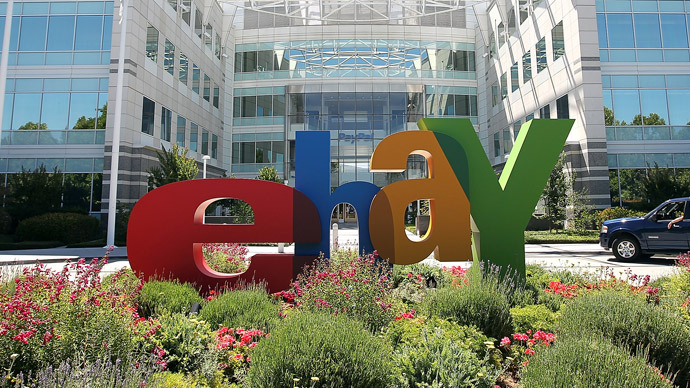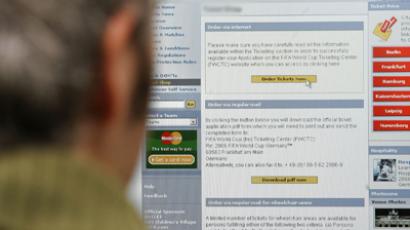US Senate passes bill to tax all Web sales, end 'online tax havens'

The US Senate has passed a bill that would end online commerce's exemption from state sales taxes. However, the final version of the legislation may not get enough support in the House to become federal law.
The Marketplace Fairness Act, which is supported by President
Obama, was passed in a 69-27 vote in the Senate on Monday.
The bill aims to ensure that brick-and-mortar and online retailers
are subject to the same rules: Currently, only online transactions
made in the same state where a company has a physical presence are
subjected to a sales tax, effectively creating online tax
havens.
"We ought to have a structure in place in the states that treats
all retail the same," said Matthew Shay, president and CEO of
the National Retail Federation, as cited by AP.
Internet sales grew $226 billion in 2012, making the issue even
more acute. The National Conference of State Legislatures (NCSL)
estimated that $23 billion in taxes were lost last year to untaxed
online sales.

“It’s not fair to my local bookstore that I can buy the same
book online as I can in the store, yet not have to pay sales taxes
online. This bill rectifies this unfairness,” said Sheila
Hixon, co-chair of the NCSL Task Force on State and Local
Taxation.
The Marketplace Fairness Act would exempt small businesses with
less than $1 million in online sales. However, opponents argue this
is not enough: eBay has called for exemptions for businesses with
up to $10 million in sales or fewer than 50 employees.
"The trouble with the bill is that it treats mom-and-pop
businesses the same way as it does multibillion-dollar retailers.
Yet a small business with a dozen employees simply can't be lumped
in with national behemoths such as Amazon and retail chains that
have warehouses and stores around the country,” eBay President
John Donahoe wrote in an article for Wall Street Journal.
Amazon is among the Internet giants supporting the bill, as it
already collects sales tax in states where it has offices or
distribution centers.

Critics of the bill say it will be difficult to comply with, as
retailers will have to calculate tax rates for 50 different states.
Supporters argue the mechanism of collecting the tax should be the
state’s responsibility, rather than the shop owner’s. States would
also be required to provide Web retailers with computer software
for tax calculations.
Marketplace Fairness Act main provisions:
- Online retailers subject to sales tax
- Businesses with less than $1 million in online sales exempt
- States must create central authority for collecting taxes
- Retailers get free tax-calculating computer software from state govts
- States may audit and sue out-of-state businesses
The bill is expected to stall in the House, however, as it will
be reviewed in hearings by the House Judiciary Committee before a
vote.
"Call me a conservative, but I believe the right approach to tax fairness is to reduce rates – not force higher rates onto others ," said Republican Representative Tom Graves of Georgia, according to Reuters.
The strongest opponents to this legislation include lawmakers from three states that do not have sales taxes: Montana, New Hampshire and Oregon.














